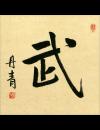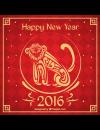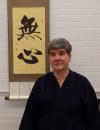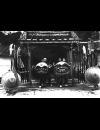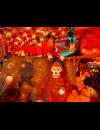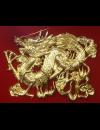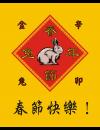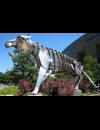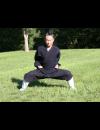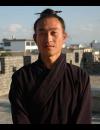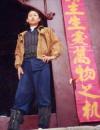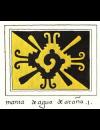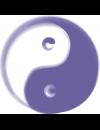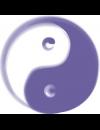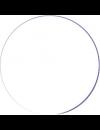Meet the Author: Munawar Ali Karim chats about Wing Chun with Gene Ching (video)
February 28, 2024
British author Munawar Ali Karim chats about his new book Wing Chun In-Depth
Meet the Author: Hermann Bayer discusses Karate origins and misconceptions with Gene Ching (video)
February 7, 2024
YMAA Staff Writer Gene Ching chats with Dr. Hermann Bayer, author of two books: Analysis of Genuine Karate: Misconceptions, Origins, Development, and True Purpose and Analysis of Genuine Karate 2: Sociocultural Development, Commercialization, and Loss of Essential Knowledge
Meet the Author: Christopher Bates talks with Gene Ching (YMAA) about Taiwan history and martial arts (video)
November 27, 2023
Translator and martial artist Christopher Bates talks with Gene Ching about Taiwan history, and the oppression and poverty experienced there post-World War Two. This is also where YMAA founder Dr. Yang, Jwing-Ming was born and lived until college. They discuss various Taiwanese martial arts styles and their overlap, including Shaolin White Crane (Bai He), Xingyiquan, Baguazhang and others.
Meet the Author: Augustus John Roe chats with Gene Ching (YMAA) about mythical martial artists (video)
November 18, 2023
Augustus John Roe is an author, linguist and instructor of traditional Vietnamese martial arts of the Bửu Sơn Phật Môn Quyền lineage. Since the mid-2000s, he has lived and trained in Asia. During this time, Augustus has worked on numerous television shows, books, magazines and academic projects documenting local cultures and martial arts practices.
Think of Beginning—Advance Gradually Lao Tzu, Translation and Commentary
-
January 6, 2019
The Nature has always developed gradually. For those who are cultivating the Dao, the final goal is "doing without doing" (wuwei, 無為). However, to reach this level, you must begin with the easy and small. Only after you are able to take care of easy and small matters should you then gradually advance into more difficult and bigger matters.
The Hero and the Warrior
-
December 31, 2018
My favorite quote from the movie Skyfall occurs when secret agent James Bond meets his new quartermaster, Q, the designer of his spy tech and furrowed brow to many of his boyish antics: "I'll hazard I can do more damage on my laptop sitting in my pajamas before my first cup of Earl Grey than you can do in a year in the field," quips Q. "Oh, so why do you need me?" Bond replies. "Every now and then a trigger has to be pulled," Q states. Bond smiles. "Or not pulled. It's hard to know which in your pajamas."
Anatomy of a Warrior Spirit
-
December 23, 2018
Martial artists are, by definition, warriors. True warriors have warrior spirit. In martial arts, as in life, there are some people who are successful, and some people who are not. The most successful people are imbued with a warrior spirit, known in the Chinese tradition as Yi. Warrior spirit has nothing to do with fighting or aggression, even though skilled fighters often have a well-developed warrior spirit. On the contrary, warrior spirit is about having the wherewithal to resolve conflict or avoid it altogether, and most of all to muster the internal fortitude requisite to the process of mastering yourself.
Guiding and Leading (Humility)-Putting Oneself Behind
-
December 10, 2018
As a leader, humility is the most important prerequisite to lead the people. The book Shu (《書‧大禹謨》) said: “(Those) satisfied will cause damage and (those) humble will acquire benefits.” This is because those who are humble can take a low position, be open-minded, and be willing to learn; thus they gain. Those who are satisfied and proud of themselves will not listen and learn from others; thus they lose. The Book of Changes (《易‧謙》) said: “Those who are humble and again humble always use their modest personality to restrain themselves.”
Celebrating Chinese New Year, the Year of the Monkey
-
February 8, 2016
For thousands of years, celebrating the New Year in China is always the biggest event of the whole year. During the lunar New Year celebration, every family makes the best food, wears their best clothes, and shoes, and keeps up their best spirit and mood. Family and friends get together to enjoy eating, laughing, chatting, and friendship. Another very important element of the celebration: fire crackers.
The Art in Martial Arts
-
July 28, 2014
For many practitioners, the phrase “martial arts” doesn’t do a particularly good job of encompassing the complexity of the systems we study. There is also a certain oxymoronic tension between things martial and things arty and serious trainees often prefer to emphasize the physical efficacy of these systems.
Chinese New Year "The Year of the Wooden Horse" Interview with Dr. Yang, Jwing-Ming
-
January 27, 2014
Most non-Chinese people (Westerners) call the Spring Festival 'Chinese New Year.' The 2014 Chinese Spring Festival falls on January 31 continuing through February 6. According to the Chinese zodiac it is the Year of the Wooded Horse. In Chinese Five Element theory, Horse is in the Fire group, which is the strongest fire animal in twelve zodiacs.
The Traditional Way to Celebrate Spring Festival or Chinese New Year
-
February 4, 2013
Daoist monk Zhou, Xuan-Yun grew up in a small village, Liu Gang Zu, in Henan Province with about 100 residents. The following are his memories and comments about the Spring Festival.
2012: The Year of the Dragon!
-
January 23, 2012
The Chinese year 4710 begins on January 23, 2012. According to the Chinese zodiac it will be the Year of the Dragon, the most auspicious of the twelve zodiac animals and the only one that is a mythical creature
2011: The Year of the Rabbit!
-
January 31, 2011
The Chinese year 4709 begins on February 3, 2011. According to the Chinese zodiac it will be the Year of the Rabbit, which is associated with peace. The Chinese calendar is lunisolar (not purely lunar). Months begin with the new moon (when it is darkest). New Year's Day usually falls on the second new moon after the winter solstice.
2010, The Year of the Tiger - Happy Chinese New Year!
-
February 8, 2010
The Chinese year 4708 begins on February 14, 2010, the year of the Tiger, with its association to bravery. This year, the date has special significance since it also happens to fall on Valentine's Day, making it a doubly auspicious day to celebrate in the West.
The Dao of Kung Fu - 武道
-
October 15, 2009
Religion is full of paradox, and Eastern religions are no exception. One of the most compelling paradoxes is that Eastern religions (Buddhism and Daoism) are closely linked with the martial arts.
Growing Up Wudang, part 2
-
December 17, 2008
It wasn’t until my third year at Wudang that I started to find the training interesting, and started to train harder because I was genuinely interested in it.
Growing Up Wudang
-
December 9, 2008
When I was in fourth grade my grandfather fell ill, and because we needed money for hospital bills, I had to leave school. I worked on our farmland, helping my family plant corn and cotton.
Zhang, San-Feng and the Ancient Origins of Taijiquan (References)
-
November 21, 2008
The origin of Taijiquan is a controversial issue. Some trace Taijiquan to the Chen family in the 1600's and others trace the art further back to Master Zhang, San-Feng. Both are correct. And neither of them created Taijiquan.
Taijiquan Yin Yang
-
August 5, 2008
Yin and Yang are opposite (i.e., relative) to each other instead of absolute. That is Yin can become Yang and Yang can change into Yin. Yin and Yang can be exchanged mutually depending on the observer’s Xin and Yi.
Taijiquan Yin Yang
-
August 5, 2008
Yin and Yang are opposite (i.e., relative) to each other instead of absolute. That is Yin can become Yang and Yang can change into Yin. Yin and Yang can be exchanged mutually depending on the observer’s Xin and Yi.
Wuji - The State of Emptiness
-
July 30, 2008
Wuji (無極) is a state of emptiness or simply a single point in space. There is no discrimination and there are no polarities (or poles). According to Yi Jing (i.e., Book of Change), originally the universe was in a Wuji state.
Wuji - The State of Emptiness
-
July 30, 2008
Wuji (無極) is a state of emptiness or simply a single point in space. There is no discrimination and there are no polarities (or poles). According to Yi Jing (i.e., Book of Change), originally the universe was in a Wuji state.
The Meaning of Taiji
-
July 18, 2008
Taijiquan (Tai Chi Chuan) is an internal style of martial arts that was created in the Daoist monastery of the Wudang mountain, Hubei Province.






